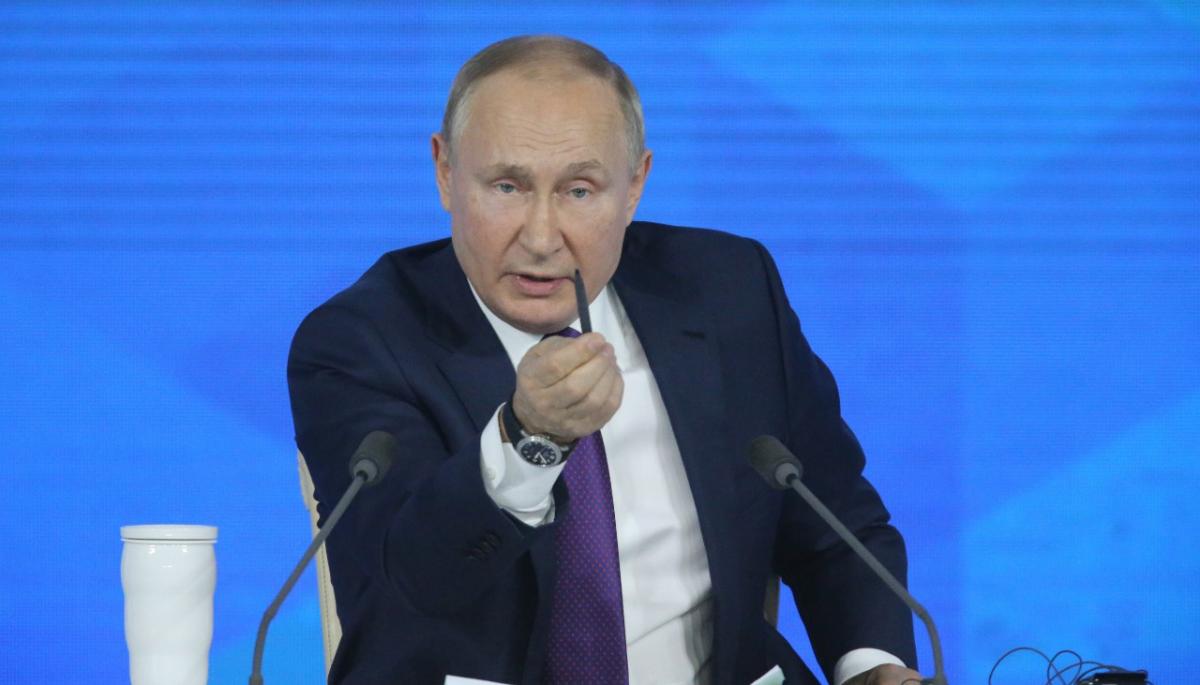Russian President Vladimir Putin said on Monday (local time) he was considering a request by two regions of eastern Ukraine held by Russian-backed separatists to be recognised as independent - a move that could give Moscow a reason to openly send troops.
Separately, Moscow said Ukrainian military saboteurs had tried to enter Russian territory in armed vehicles, an accusation dismissed as "fake news" by Kyiv amid Western accusations that Moscow aims to fabricate a pretext to invade.

Washington says Russia has now massed a force numbering 169,000-190,000 troops in the region, including pro-Russian rebels in eastern Ukraine.
European financial markets tumbled at signs of increased confrontation, after having briefly edged higher on the glimmer of hope that a summit might offer a path out of Europe's biggest military crisis in decades. Russian shares plunged, and the rouble dropped 3 percent.
Russia denies planning any attack on its neighbour, which broke away from Moscow's rule with the collapse of the Soviet Union in 1991, but has demanded sweeping security guarantees, including a promise that Ukraine will never join NATO.
After an extraordinary meeting of his Security Council, Russian President Vladimir Putin restated those demands, insisting that it was not enough for the West to say Ukraine was not ready to join NATO at present.
READ MORE
- US claims Russia has list of Ukrainians 'to be killed' following a military occupation
- Boris Johnson says Russia planning 'biggest war in Europe since 1945'
- Russian backed separatists evacuate eastern Ukraine as shelling intensifies
- US, NATO says Russia building up troops around Ukraine not pulling back
In televised remarks, he also said Moscow had to consider the request made a few hours earlier by the leaders of the Luhansk and Donetsk regions, which broke away from Kyiv's control in 2014..
Ukraine and the West consider the rebels controlling the two small eastern regions to be Russia's proxies, and have been warning for weeks that Moscow might use them to fabricate a case for war.
Former president Dmitry Medvedev, deputy chairman of Russia's Security Council, said it was "obvious" that Ukraine did not need the two regions, and that a majority of Russians would support their independence.
Defence Minister Sergei Shoigu then appeared to raise the stakes even further by saying that Ukraine - which renounced nuclear weapons after independence from the Soviet Union - had a greater "nuclear potential" than Iran or North Korea.
After talks in Brussels with NATO Secretary-General Jens Stoltenberg, British foreign minister Liz Truss said Western countries were preparing for a "worst-case scenario". The airlines Lufthansa, KLM and Air France all cancelled flights to Kyiv.
Prime Minister Boris Johnson's spokesman said Britain had seen intelligence suggesting Putin's invasion plan had begun.
"We're seeing seen elements of the Russian playbook that we would expect to see in certain situations starting to play out in real time," he told reporters.



